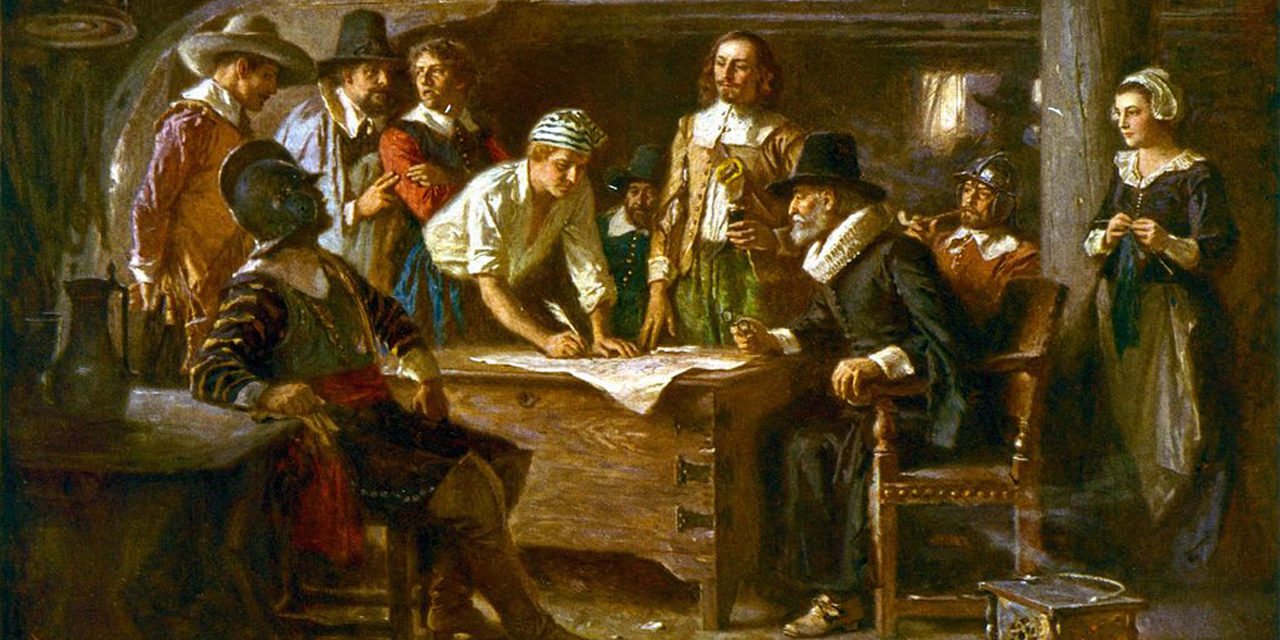It is critically important to get history right. That is precisely what the New York Time’s infamous 1619 Project did not do, as the Daily Citizen has covered here, here, and here. But an important new offering – the 1620 Project – from the good folks at the National Association of Scholars is helping us get the history of our nation’s founding right. And that is a very good thing.
As most people know, the Time’s 1619 Project claimed last year, that 1619 was America’s “true founding” and that our nation was founded for no other purpose but the perpetuation of slavery. And for this it won a Pulitzer Prize.
But Peter W. Wood, the President of the National Association of Scholars, has made it his mission of late to make sure that everyone knows the real story of our nation’s founding in the face of this creative fiction. His magisterial response has just been published in 1620: A Critical Response to the 1619 Project (Encounter Books).
Wood argues that the better place to mark our nation’s founding, if a date prior to the actual founding in 1776 is needed, would be the signing of the Mayflower Compact on November 21, 1620. This of course, is the document drafted and signed by the Pilgrims before they disembarked their ship and set foot upon the New World. Wood argues that “the quintessential ideas of American self-government and ordered liberty grew from the deliberate actions of the Mayflower immigrants in 1620.” It was these ideals, written down and signed, that served as the seeds of what would ultimately become the United States of American, the envy of freedom, opportunity, and prosperity of the world. Stanley Kurtz explains over at Nation Review Online,
I can think of no book more deserving of a review in The New York Times—or less likely to receive one—than Peter Wood’s just-published 1620… More than a powerful refutation, Wood’s 1620 is a withering appraisal and deadpan skewering of the 1619 Project as a cultural phenomenon.
Kurtz adds that Professor Wood’s book “will be contemplated by future historians as a record of the pushback against the cultural revolution of 2020.”
The Mayflower Compact is indeed well worth considering as a remarkably concise, but critical document in our nation’s founding. Wood explains that these less-than-200-words were “the very beginning of principled self-government among European settlers in the New World.” He adds, it was at this moment “they invented a prototype of our republic.”
The earliest copies of the Mayflower Compact can be seen here in this historic collection. Originally entitled “Agreement Between the Settlers at New Plymouth,” it was signed by 41 men, including two indentured servants, even before they set foot on dry land. The Mayflower’s passengers intended to land in Virginia in October of that year in two ships. But serious problems developed. They finally anchored in Provincetown Harbor within the hook of the northern tip of Cape Cod. It was there, while still on the ship, that the Compact was signed and the Massachusetts Pilgrim colony established.
The text of the Mayflower Compact clearly explains what their intention was. It was not to establish slavery of course, but to glorify God and advance “the Christian Faith.” This full text of the Compact states,
IN THE NAME OF GOD, AMEN. We, whose names are underwritten, the Loyal Subjects of our dread Sovereign Lord King James, by the Grace of God, of Great Britain, France, and Ireland, King, Defender of the Faith, &c. Having undertaken for the Glory of God, and Advancement of the Christian Faith, and the Honour of our King and Country, a Voyage to plant the first Colony in the northern Parts of Virginia; Do by these Presents, solemnly and mutually, in the Presence of God and one another, covenant and combine ourselves together into a civil Body Politick, for our better Ordering and Preservation, and Furtherance of the Ends aforesaid: And by Virtue hereof do enact, constitute, and frame, such just and equal Laws, Ordinances, Acts, Constitutions, and Officers, from time to time, as shall be thought most meet and convenient for the general Good of the Colony; unto which we promise all due Submission and Obedience. IN WITNESS whereof we have hereunto subscribed our names at Cape-Cod the eleventh of November, in the Reign of our Sovereign Lord King James, of England, France, and Ireland, the eighteenth, and of Scotland the fifty-fourth, Anno Domini; 1620.
Celebrating the 300th anniversary of the Compact’s signing, yet-to-be President Calvin Coolidge wrote in the New York Herald on November 23, 1920,
The compact which they signed was an event of the greatest importance. It was the foundation of liberty based on law and order, and that tradition has been steadily upheld. They drew up a form of government which has been designated as the first real constitution of modern times. It was democratic, an acknowledgment of liberty under law and order and the giving to each person the right to participate in the government, while they promised to be obedient to the laws.
But the really wonderful thing was that they had the power and strength of character to abide by it and live by it from that day to this. Some governments are better than others. But any form of government is better than anarchy, and any attempt to tear down government is an attempt to wreck civilization.
It is beyond ironic that Nikole Hannah-Jones, a primary author of the 1619 Project, tweeted that it’s “an honor” to have this summer’s anarchist outbursts across major U.S. cities called the “1619 riots.”
Photo from Wikipedia/Library of Congress






